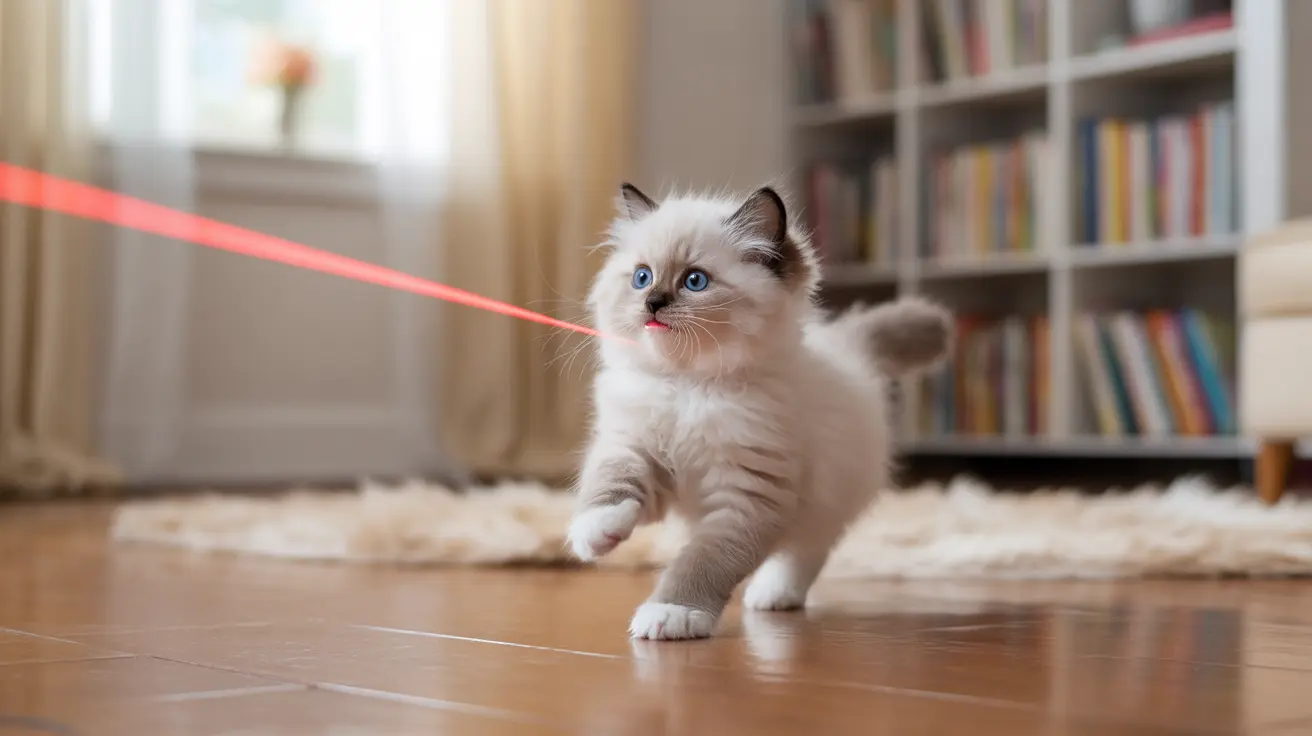If you're a new kitten parent struggling with nighttime activity, you're not alone. Kittens are naturally energetic during dawn and dusk, which can lead to disrupted sleep for their owners. This comprehensive guide will show you effective strategies to help calm your kitten down at night and establish healthy sleep patterns for both of you.
Understanding why kittens are active at night is the first step toward creating a solution. Their crepuscular nature, combined with daytime napping and natural hunting instincts, can make nighttime particularly challenging. However, with the right approach, you can help your kitten adapt to a more human-friendly schedule.
Creating an Effective Evening Routine
A structured evening routine is crucial for helping your kitten wind down. Start by scheduling interactive play sessions 2-3 hours before bedtime. This timing allows your kitten to expend energy while having enough time to settle down before sleep.
Use wand toys, laser pointers, or small balls to engage your kitten in chase-and-pounce activities. Aim for 15-20 minutes of vigorous play, mimicking their natural hunting behavior. This not only tires them physically but also satisfies their predatory instincts.
Strategic Feeding for Better Sleep
Timing your kitten's last meal is essential for nighttime calm. Feed them their final meal about an hour before bedtime. This natural pattern of hunt-eat-groom-sleep helps trigger their sleep response.
Consider using an automatic feeder to distribute small portions throughout the day, preventing hunger-induced activity at night. This consistent feeding schedule helps regulate their internal clock and reduces early morning wake-up calls.
Creating a Sleep-Friendly Environment
Your kitten needs a dedicated sleeping space that feels safe and secure. Set up a cozy bed in a quiet corner, away from household traffic. Consider using a cat cave or bed with high sides to create a den-like atmosphere that appeals to their instincts.
Keep the sleeping area at a comfortable temperature and use blackout curtains or dim lighting to signal that it's time to rest. Some kittens benefit from white noise machines or gentle background sounds that mask household noises.
Managing Nighttime Behavior
When your kitten acts up at night, resist the urge to respond to attention-seeking behaviors. Providing attention, even negative attention, reinforces the behavior. Instead, ensure they have everything they need before bedtime and remain consistent with ignoring nighttime disruptions.
If your kitten is particularly persistent, consider placing them in a separate room with all necessities: litter box, water, and bed. This arrangement helps establish boundaries while ensuring their comfort and safety.
Frequently Asked Questions
How can I calm my kitten down and help them sleep through the night?
Establish a consistent routine of evening play followed by a final meal, create a cozy sleeping space, and ignore attention-seeking behaviors at night. This combination helps your kitten understand that nighttime is for sleeping.
What is the best evening routine to tire out a kitten before bedtime?
Schedule 15-20 minutes of intensive play 2-3 hours before bedtime, using interactive toys that encourage running, jumping, and pouncing. Follow this with their evening meal and quiet time to wind down.
How does feeding my kitten a late meal affect their nighttime behavior?
A late evening meal triggers natural grooming behavior and sleepiness, making your kitten more likely to rest afterward. It also prevents hunger-related activity during the night.
Where should I set up a sleeping area to make my kitten feel safe and secure at night?
Choose a quiet, warm corner away from household traffic. Provide a bed with high sides or a cave-style bed, and maintain consistent temperature and lighting conditions.
What are effective ways to manage a kitten's nighttime attention-seeking behaviors without reinforcing them?
Ignore meowing, scratching, or other attention-seeking behaviors at night. Ensure all needs are met before bedtime, and maintain consistency in not responding to nighttime disruptions.
Conclusion
Calming a kitten down at night requires patience, consistency, and understanding of their natural behaviors. By implementing these strategies and maintaining a regular routine, you can help your kitten develop better sleep habits that align with your schedule. Remember that young kittens may take several weeks to adjust to new patterns, so stay consistent with your approach for the best results.






